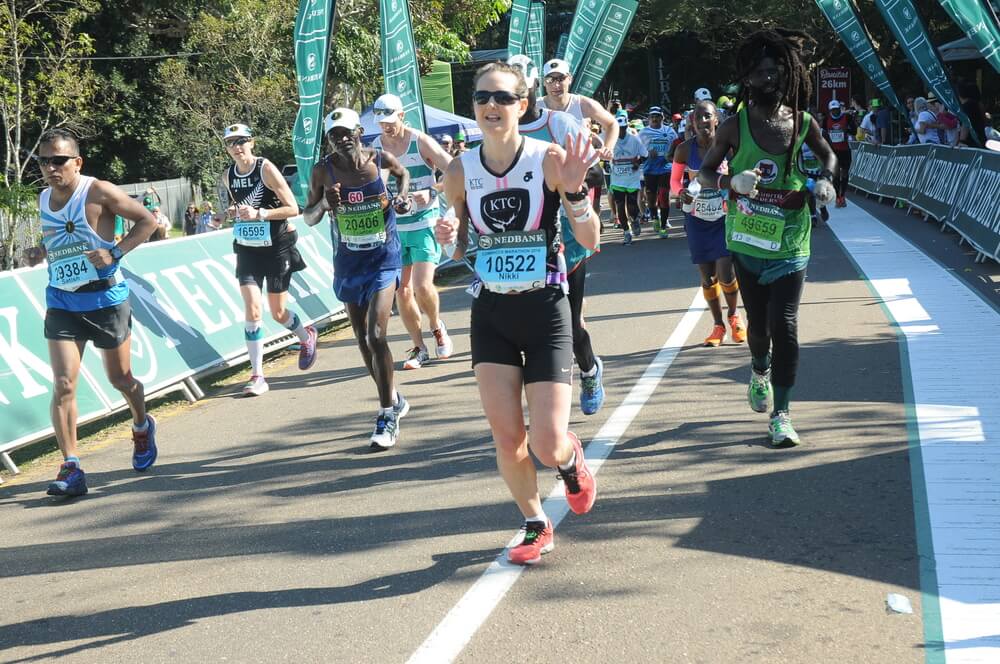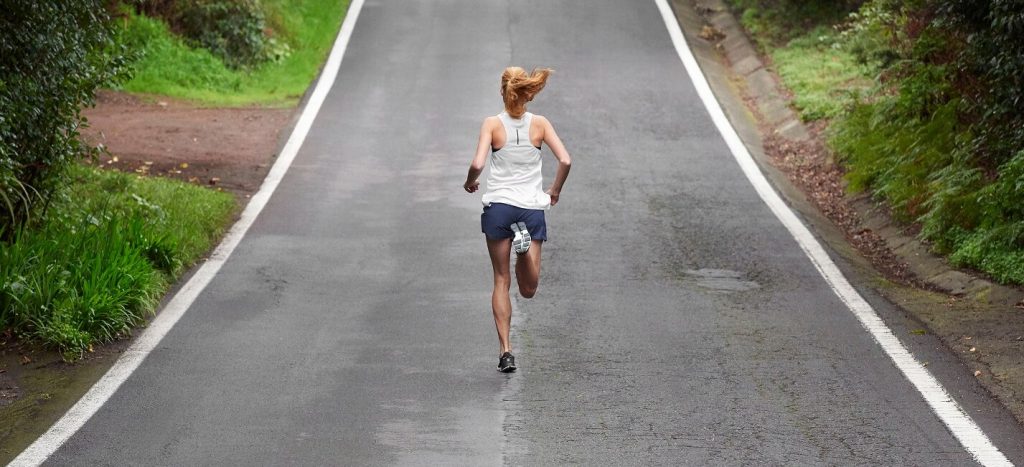
Run Comrades Marathon 2020 with Africa Marathons
January 29, 2020
Celebrating Women in Running This International Women’s Day
March 8, 2020Top Tips for Ultra Marathon Training

By Gemma Oates, Africa Marathons team member & Physiotherapist.
With runners in the midst of Comrades Marathon training right now, I thought it would be helpful to talk about tips I have for successful ultra marathon training.
Allow enough time for ultra marathon training
Most marathon training programmes are 16 weeks long, but you most likely will need longer if taking on an ultra marathon. For longer ultra marathons, like the Comrades Marathon, many athletes chose to train for six months. The benefit of this is runners can build up their mileage gradually and reduce the risk of injury or overtraining too quickly.
It is also advisable to have a regular background of running before taking on an ultra marathon. This way, your body is more likely to cope with the increase in mileage over the coming months.

Learn the correct pacing for an ultra marathon distance
Some runners make the mistake of setting a pace that is too quick for an ultra marathon and risk struggling with the latter stages. It is imperative to pace correctly when running such a long distance and the best way to learn this is by practice. During your long runs, learn to run at a comfortable, easy pace, so that on race day this is familiar. You can judge an easy pace by your heart rate on your watch or by being able to talk easily on your run.
Train for the terrain
As well as your legs getting used to the distance, it is important they also get used to the terrain they will be running on. If the ultramarathon is on trails, then spend plenty of time training on them, or if it is on the road, then it is better to stick to that more. If the race is hilly, like the Comrades Marathon, then hills sessions are essential. It is also helpful to train in the climate you will be running in if possible, so there are no shocks to your body on race day.

Prioritise cross-training and strength work
Cross-training and strength work can often get put down the list of priorities due to lack of time to fit everything in. However, with the load of distance running, it is so vital that we are strong enough to cope with this, also reducing that load during your training by cross-training. Cross-training allows you to continue to build your cardiovascular fitness while giving your legs a bit of a rest from the impact. Many runners aim to do 1-2 sessions of this a week. Swimming is excellent, as is cycling or rowing, as they are all low impact. Strength training should also be included aiming for around two sessions a week focusing on legs, glutes, core and the upper body. Pilates is good, as is yoga too as it allows a chance to stretch out too.
Ensure you get enough rest
What many runners forget to consider is the importance of rest and recovery when training and this is even more important during ultramarathon training. It is during the recovery period after exercise that our fitness gains develop, so you do need to allow time for this. Recovery can be in an active form, like a walk, or a cross-training session, but most runners should aim to have one complete rest day a week. This will also help to reduce your injury risk and prevent too much fatigue kicking in. You’ll even notice you may require more sleep than usual. If this is the case, try to listen to your body and get extra sleep if you can.
It is also important to think about your diet when training and making sure you are getting the right intake to cope with your training. To train at your best, you will need energy from carbohydrates and to aid recovery, protein is also important.
Figure out your fuelling
Running an ultra marathon will require fuelling during the race. It is essential that you test this on training runs, so you know when to fuel and what type is best for you. Inadequate fuelling can leave you struggling without enough energy during the race, so it is important to know when you need to take on energy and what type works best for you. Some people have stomach troubles with certain gels, so again it is essential to test with different energy sources, so you know what suits you. With this all practised during training, it will mean there are no unpleasant surprises on race day!

Train your mind to cope
As well as physically challenging, an ultra marathon is also mentally challenging. It can sometimes be the hardest part of the race when your mind is telling you to give up, and it can be challenging managing these thoughts. Things that can help with this are learning to stay in the moment. It is best to try not to think about what is ahead as this can often feel overwhelming. Breaking down the distances into smaller chunks can be a mentally positive thing to do too. It is also good to prepare yourself that you will hit the wall. It is highly likely to happen at some point during an ultra marathon, so it is good to be comfortable with this and have personal strategies in dealing with it.
Speaking with one of the Comrades Marathon winners recently, he said that he copes by reassuring himself that he will come out of it soon, that it is only short-term pain, and the pain of not finishing will be much greater.
I hope these tips are useful and if you are taking on the Comrades Marathon this year or any other ultra-marathon, good luck with your preparation and the race!
If you are interested in running an ultra marathon, we have our own online coach who can assist with a training program. You can contact us on [email protected] or ring us on +44 1932 361807 (UK) +1 844 390 1798 (USA) +44 (0)7791360170 (Rob).


